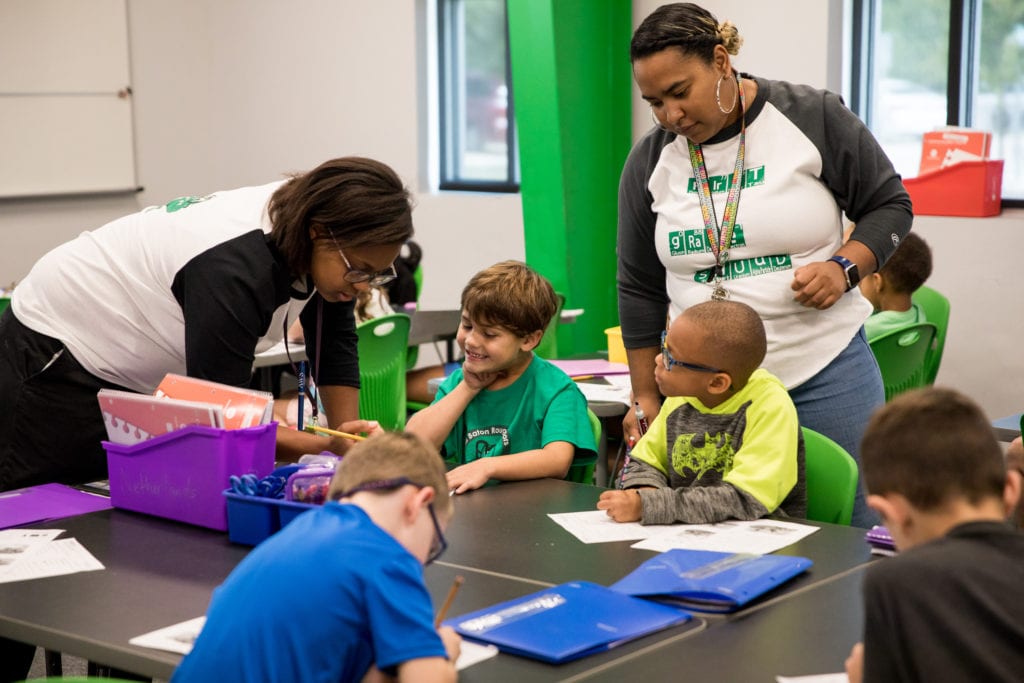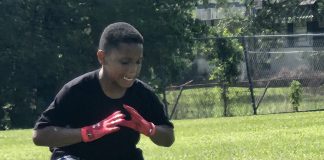Disclosure :: This post is sponsored by BASIS Charter Schools.
How to Support Student Achievement and Development
To grow both academically and as individuals, students need a strong system of support at school. They are more likely to engage in class and achieve at high levels when they have trustworthy adults who they can confide in about their struggles, share their successes with, and seek out when they need help navigating academic and social life. At many schools, these individuals make up the student support services department, which aims to enhance academic achievement, while supporting students’ social and emotional needs.
Maya Bennett, the Director of Student Affairs at BASIS Baton Rouge—Materra Campus, discusses the importance of supporting students academically, socially, and emotionally, offering insight into her own practices before and during distance learning.
Academic Support
To provide students with the most comprehensive support, Bennett utilizes multiple resources to target academic needs and to come up with innovative solutions to problems. She supports academic achievement by collaborating with teachers and working with student data “I like to think of myself as an obstacle eliminator,” she says. “I work to eradicate whatever is getting in the way of our students reaching their full potential.”
Collaborating with teachers
By directly supporting the teachers and Head of School at BASIS Baton Rouge Materra, Bennett is able to secure the greatest student outcomes, while refining the school’s culture of achievement. “I know that if we take care of our teachers, then they will take care of our students. With this always at the top of my mind, I work to ensure that our teachers are supported and have what they need to do what they love,” she explains. This practice also allows Bennett to foster positive relationships between teachers and students, thus increasing student interest and engagement in school.
Working with student data
Bennett says she also spends a lot of time analyzing student data, to identify potential areas of concern and to provide necessary academic interventions. This data-driven support practice is especially relevant to distance learning, as many parents are worried that distance learning has increased gaps in achievement between students. Always one step ahead of the game, Bennett has already begun implementing academic interventions at her school. “I recently established an academic support program that pairs students who are struggling academically with an advisor to help close the gap in learning,” she says. Bennett also plans to implement an intervention that addresses overall academic performance. She explains, “I am currently working on a series of sessions for students that helps them improve their study skills and academic mindset.” By implementing interventions that target specific academic needs and provide students with general study strategies, Bennett helps increase student achievement, while still maintaining BASIS Baton Rouge Materra’s high academic standards.
Social and Emotional Support
Bennett strives to ensure that her students are receiving a world-class education, while also having their social and emotional needs met. She does this by helping her students understand and respond to their feelings and by cultivating a close and connected school community. “This is my opportunity to explicitly teach students how to identify triggers, name their feelings, create healthy boundaries, and engage socially in safe, healthy ways,” she says.
Addressing feelings
Bennett always takes time to speak with her students individually when they need help addressing their emotions. “We start with an assessment of the student’s feelings, and then we transition into a reflection about the cause of those feelings, which ultimately leads to solutions and strategies,” she explains. In this way, students feel heard and validated, while also learning important emotional regulation skills. “I empower students by giving them the tools they need to process events in their lives in a healthy and productive way,” she says. “There is no greater joy for me than seeing a student apply a skill that I taught them in a way that helps them succeed and achieve.”
Having emotional support is especially important during distance learning, as many students are experiencing increased levels of stress and anxiety. To prevent these feelings from affecting her students academically and emotionally, Bennett continues to emphasize emotional regulation skills, while working with teachers and staff to make sure their students know that they are there for them. “We give them our best every day. We call them when they’re absent. We give them specific praise and name their strengths. And we take every measure to ensure that they are safe,” she says.
Making connections
Bennett also works to cultivate a close and welcoming learning community, where students feel connected to their peers and teachers. “We know that when a person of any age feels a sense of belonging, measurable outcomes improve,” she says. However, for many schools, maintaining a connected community has become difficult during distance learning, causing students to feel isolated and disconnected from their peers. To prevent this from happening at BASIS Baton Rouge Materra, Bennett made some significant changes to how she coordinated social activities. “While our students were at home, we launched a series of initiatives aimed at engagement, connection, and wellness. These included spirit weeks, daily announcements, lunch parties, and weekly celebrations. And while it was a stretch sometimes, it was worth it in the end to see our students learning joyfully in the comfort and safety of their own home,” she says.
Bennett reminds us that even in challenging circumstances, students are incredibly resilient and malleable, and they can bridge gaps in achievement quickly when provided with the right amount of support. “Without an intricate web of support, care, and connection, challenges become greater,” she says. “But when those things are in place, you better watch out, because the sky is the limit!”




















